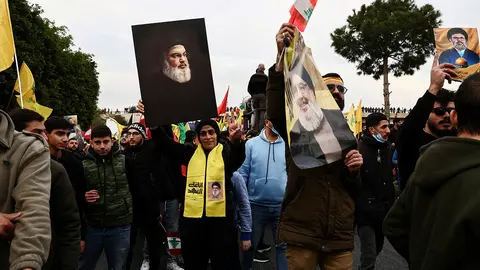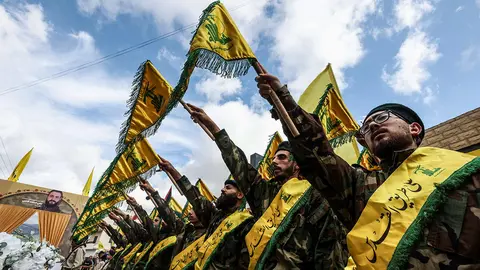Iran's decline accelerates the disarmament of Hezbollah
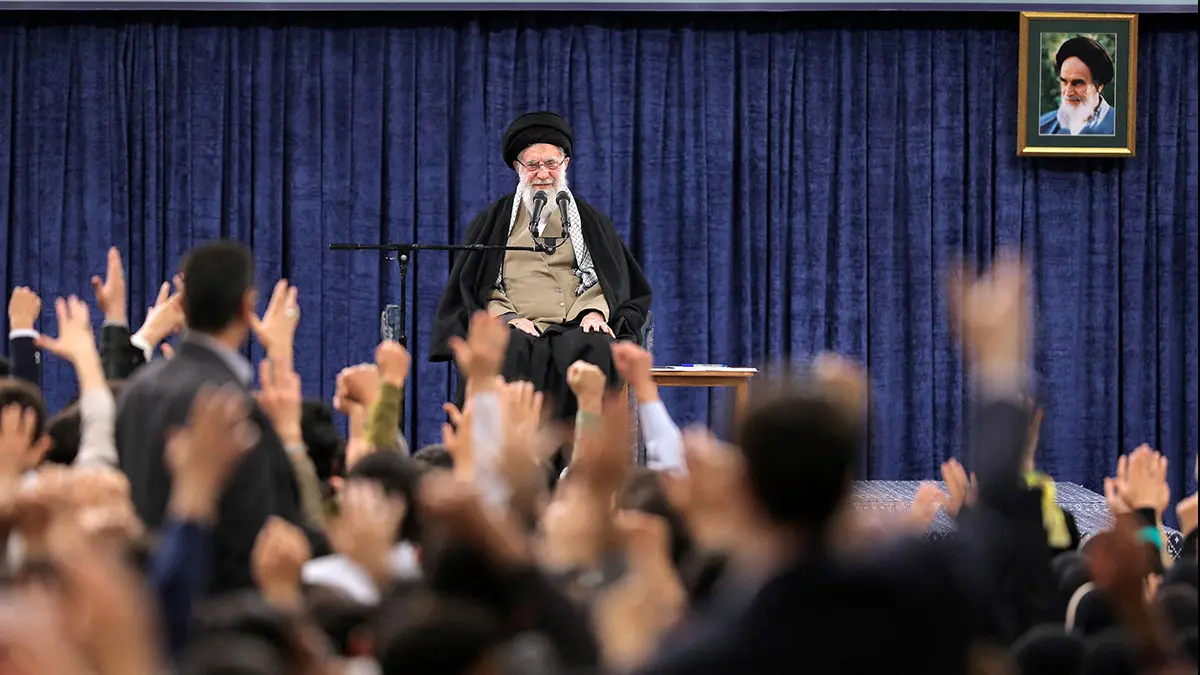
The until recently unthinkable disarmament of a weakened Hezbollah could be closer than ever. Analysts point out that US pressure on the Lebanese government and on Iran, the group's main ally, over its nuclear programme, is changing the regional balance.
Hezbollah was severely weakened by more than a year of hostilities with Israel, which began with a rocket-launching campaign against its archenemy in support of its ally Hamas and culminated in a major bombing campaign and Israeli ground incursion into Lebanon.
In the months following the war, which devastated parts of the country and killed many of the movement's top leaders, Lebanon elected a president and formed a government after a vacuum of more than two years as the balance of power shifted.
The war ‘clearly changed the situation on the ground in Lebanon,’ said David Wood of the International Crisis Group.
‘It is conceivable to think that Hezbollah could move towards disarmament and potentially even participate voluntarily in that process,’ Wood added.
Hezbollah was the only group that refused to disarm after the 1975-1990 Lebanese civil war. Reinforced by an arsenal once considered more powerful than that of the Lebanese army, it long presented itself as the country's best line of defence against Israeli aggression.
Under a 27 November truce, Hezbollah was to withdraw its fighters north of the Litani River in Lebanon and dismantle all remaining military infrastructure in the south, while the Lebanese army was to deploy in the area.
Israel was supposed to withdraw its troops, but it still remains in five places it considers ‘strategic’ and carries out regular attacks on what it says are mostly Hezbollah targets.

Hezbollah said it had handed over to the Lebanese army around 190 of its 265 identified military positions south of the Litani.
The US Deputy Special Envoy for the Middle East, Morgan Ortagus, who is leading Washington's campaign to pressure the Lebanese government into disarming Hezbollah, said this month that this should happen ‘as soon as possible’.
Lebanese President Joseph Aoun, who has promised a state monopoly on the possession of arms, has said that the issue requires a national dialogue.
Hezbollah, which was created after the Israeli invasion of 1982, has already accepted significant political compromises this year, including a refusal to obstruct the selection of the new president.
Hanin Ghaddar, of the Washington Institute, says that the disarmament of Hezbollah was ‘inevitable’.
The only alternative to the Lebanese state disarming the group ‘is for Israel to do so’ militarily, Ghaddar added.
The retired head of intelligence in southern Lebanon, General Ali Shahrour, reported that after Hezbollah's recent setbacks ‘it is certainly not in its interest to engage in any war (with Israel) or confrontation against the (Lebanese) state’ as opposed to disarming.
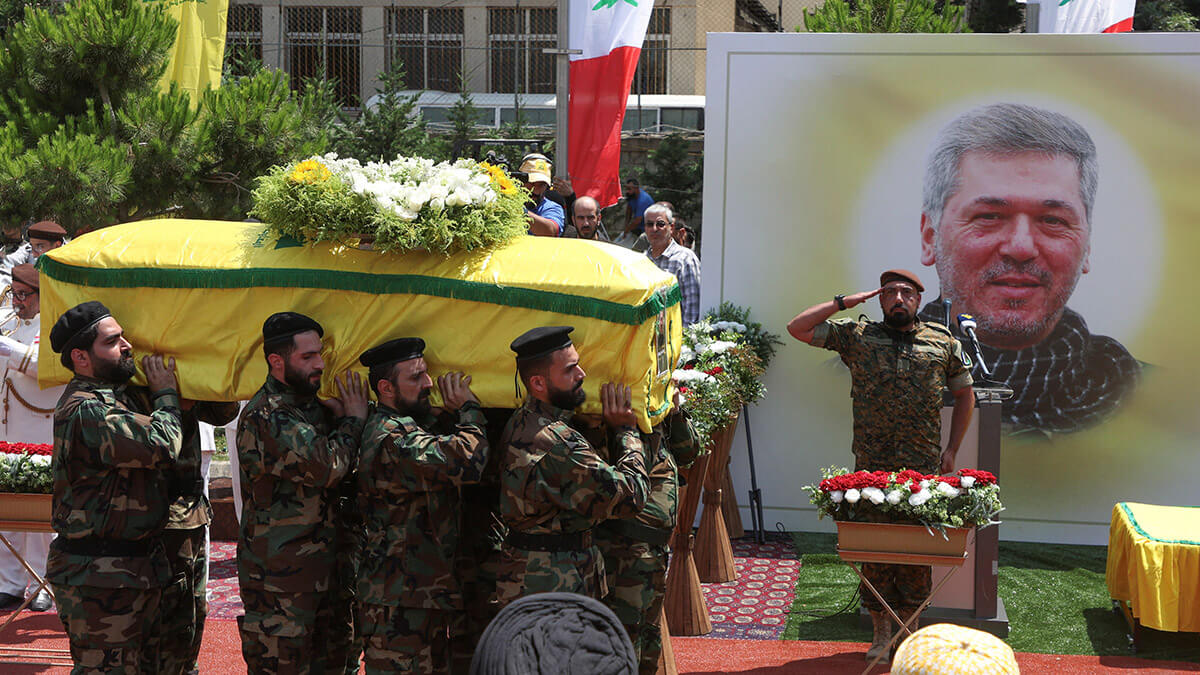
He added that talks between Iran, Hezbollah's sponsor, and the United States to curb Tehran's nuclear programme would affect Iranian-backed groups throughout the region.
Those negotiations began last weekend, when US President Donald Trump threatened military action against Iran if they failed to reach an agreement.
Several Hezbollah officials have stated that the group is ready to discuss Lebanon's defence strategy, including the issue of the group's weapons, but is not prepared to hand them over now.
Ghaddar emphasised that the current leader of Hezbollah, Naim Qassem, and the head of its parliamentary bloc, Mohammed Raad, probably wanted to ‘play the game of time’ to avoid disarmament.
Hezbollah wants to ‘survive’ as a military institution, he said, adding that any internal divisions would focus on ‘how to do it’.
Several experts said the constant presence of Israeli troops along the border has benefited the group.
‘The Israelis are certainly giving Hezbollah a justification for keeping its weapons,’ said Shahrour, the retired intelligence official.
A source close to Hezbollah, who spoke on condition of anonymity, said that the Lebanese army lacked ‘the military capacity to defend the south’ against Israel.
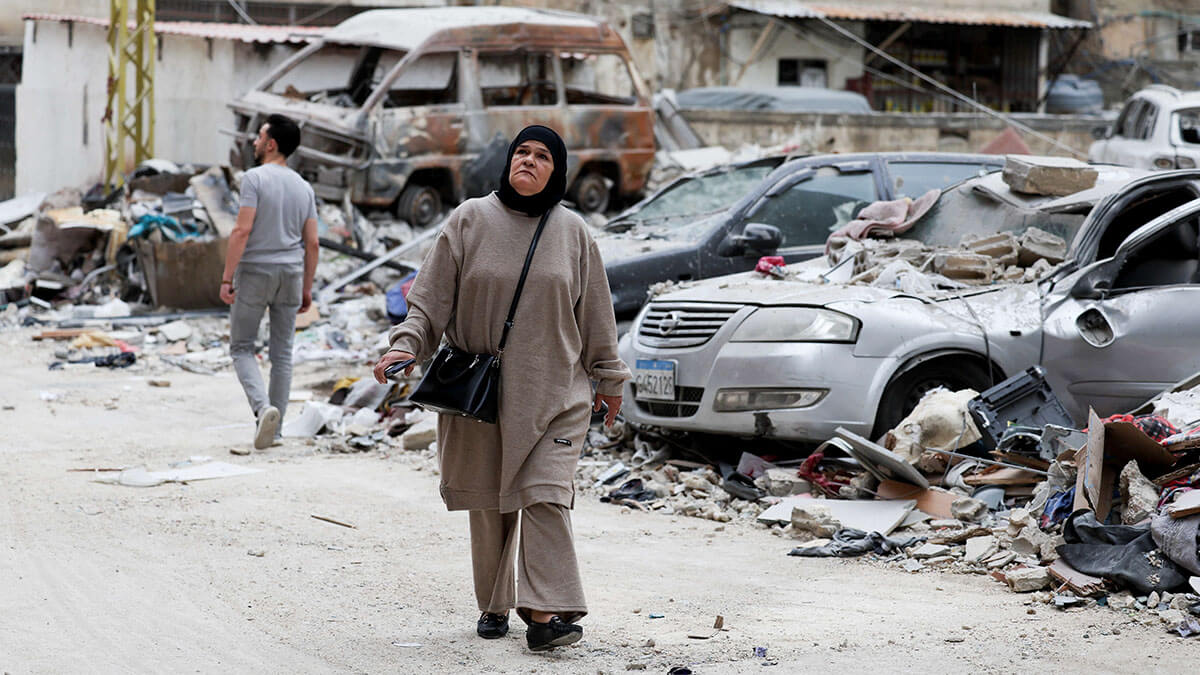
Lebanese experts accused Washington of insisting that Hezbollah's rockets be destroyed, rather than confiscated, in order to keep the Lebanese army weak.
Wood, of the Crisis Group, said that Beirut's options included dismantling Hezbollah's military infrastructure or integrating its weapons and fighters into the regular army.
The ‘safest approach’ is to ‘move cautiously and take your time’.
‘It is possible that Iran will seek to exchange its support for its regional allies, including Hezbollah, for concessions in the negotiations with the United States,’ Wood added.
Karim Bitar, professor of Middle East Studies at the University of Sciences Po in Paris, stressed that the question of what should come first, Israel's total withdrawal or Hezbollah's disarmament, is ’a chicken and egg situation.’
Hezbollah would probably hand over some heavy weapons and deny responsibility for weapons held by individuals aligned with the group, he added.
‘Without an Iranian green light, I doubt that Hezbollah would voluntarily hand over its weapons to the Lebanese army, even if it were offered the chance to form an autonomous battalion within the Lebanese army,’ he said. ’Much of this will depend on the negotiations between the United States and Iran.’

